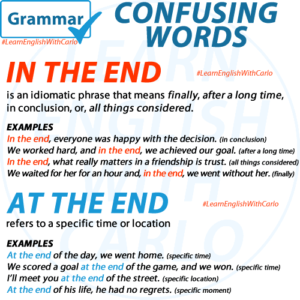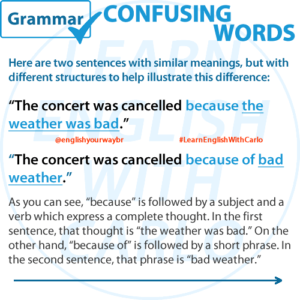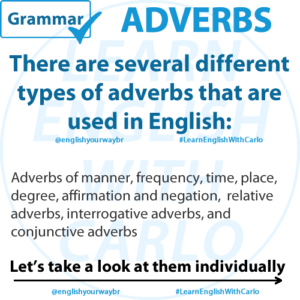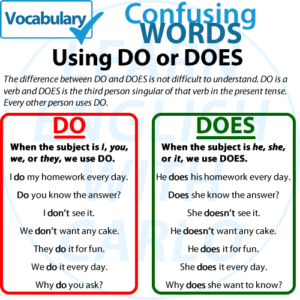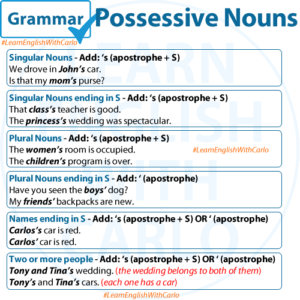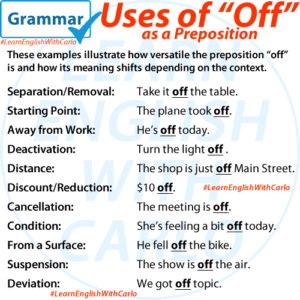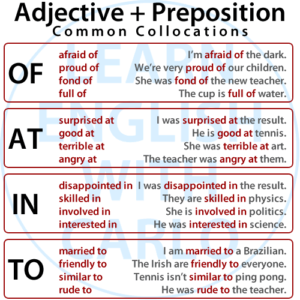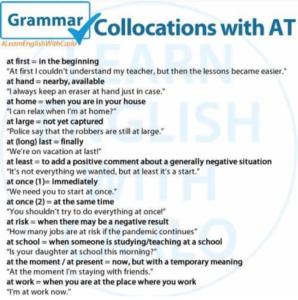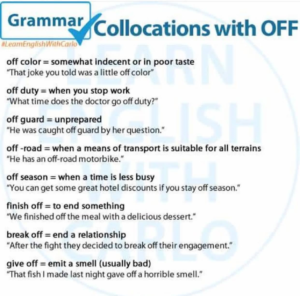GRAMMAR – AT THE END vs IN THE END English learners often confuse the phrases at the end and in the end because they sound similar. However, their meanings and usage are distinct. Let’s break them down and look at some examples to help you use these phrases correctly. What Does AT THE END Mean? …
Category: GRAMMAR
Permanent link to this article: https://englishyourway.com.br/grammar-at-the-end-vs-in-the-end/
May 21
“Because” vs. “Because of”
What’s the difference between “because” and “because of”? In most cases, “because” is followed by a subject and a verb, and “because of” is typically followed by a single word or phrase. Here are two sentences with similar meanings, but with different structures to help illustrate this difference: “The concert was canceled because the weather …
Permanent link to this article: https://englishyourway.com.br/because-vs-because-of/
May 20
Grammar – Adverbs
Permanent link to this article: https://englishyourway.com.br/grammar-adverbs/
May 18
CONFUSING WORDS – DO vs. DOES
The difference between DO and DOES is not difficult to understand.DO is a verb and DOES is the third person singular of that verb in the present tense. Every other person in the conjugation uses DO. When the subject is I, you, we, or they, we use DO. I do my homework every day.Do you …
Permanent link to this article: https://englishyourway.com.br/confusing-words-do-vs-does/
May 17
Mastering Possessive Nouns in English: A Complete Guide
Possessive nouns can seem tricky at first, but once you grasp the rules, you’ll find them easy to use. In this post, we’ll explore how to form possessive nouns in different contexts, ensuring that you can confidently show ownership in your writing. 1. Singular Nouns For most singular nouns, showing possession is straightforward. Simply add …
Permanent link to this article: https://englishyourway.com.br/mastering-possessive-nouns-in-english/
May 16
Uses of “Off” as a Preposition
The preposition “off” has many different uses in English, depending on the context. Here’s a breakdown of its main uses: 1. Separation or Removal 2. Starting Point (in Time or Space) 3. Away from Work or Duty 4. Deactivation or Disconnection 5. Distance or Separation 6. Reduced or Discounted 7. Cancellation or Suspension 8. Condition …
Permanent link to this article: https://englishyourway.com.br/uses-of-off-preposition/
May 13
GRAMMAR Adjective + Preposition
Adjectives are words used to describe a person, place, or thing, for example, The tall man in the red shirt is a friend of mine. We drove along a quiet road until reaching a small town. I’m reading an interesting book. Prepositions are words used to connect two ideas or to demonstrate the relationship between …
Permanent link to this article: https://englishyourway.com.br/grammar-adjective-preposition-2/
Apr 26
GRAMMAR – Collocations with AT
The preposition “at” is used in many common expressions in English, each with unique meanings. Below, you’ll find clear explanations and examples to help you understand and use these expressions confidently. Let’s explore! 1. At First = In the beginning This expression describes the initial phase of something, often followed by a change. Examples: 2. …
Permanent link to this article: https://englishyourway.com.br/grammar-collocations-with-at/
Apr 25
GRAMMAR – Collocations with off
The English preposition “off” has a variety of meanings and uses, often forming part of idiomatic expressions and collocations. In this blog post, we’ll explore some common expressions with “off,” provide clear definitions, and share examples for each. Let’s dive in! 1. Off Color Definition: Something that is somewhat indecent, inappropriate, or in poor taste.Examples: …
Permanent link to this article: https://englishyourway.com.br/grammar-collocations-with-off/
GRAMMAR – Has gone to vs. Has been to
The present perfect forms have gone to and have been to are often confused in English. However, there areclear differences between the two forms. The present perfect forms have gone to and have been to are commonly used to refer to movement to another place. Notice the differences in the examples below. Has / Have …
Permanent link to this article: https://englishyourway.com.br/grammar-has-gone-to-vs-has-been-to/

